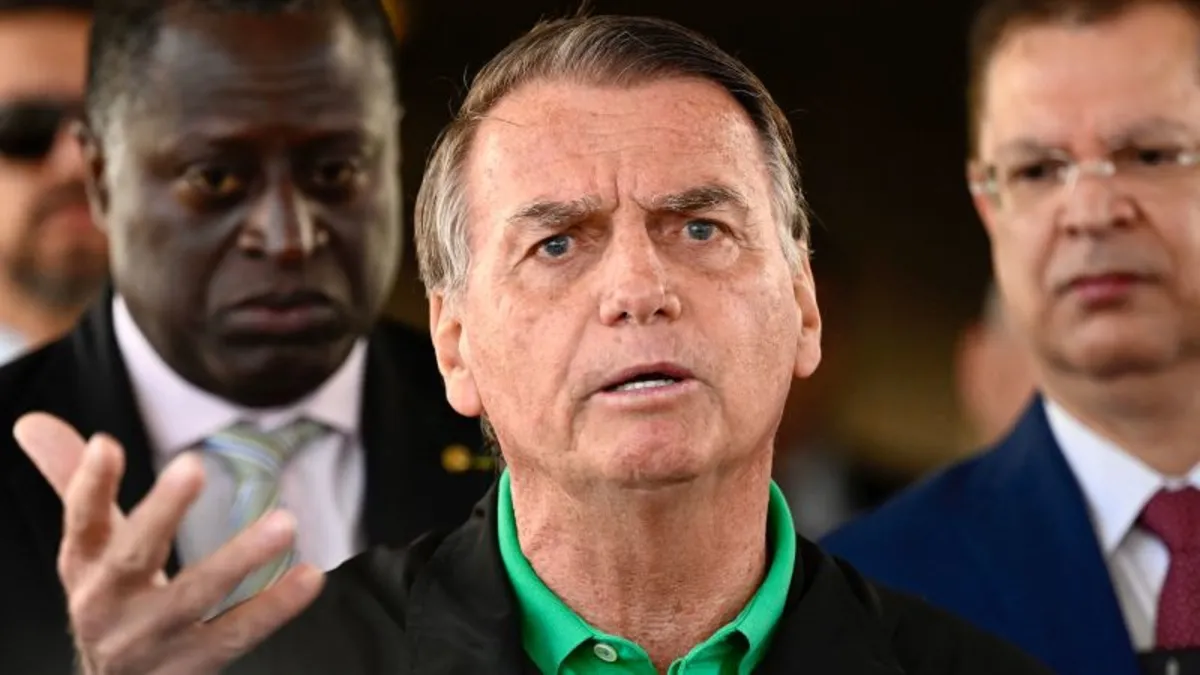
In a dramatic turn of events, Brazilian police executed a raid on the home and political headquarters of former President Jair Bolsonaro early on Friday. This operation involved a thorough search of the properties and the imposition of strict legal restrictions on Bolsonaro, including the requirement to wear an electronic ankle tag. The Supreme Court of Brazil mandated these measures due to concerns that Bolsonaro might attempt to flee to the United States, as reported by CNN Brasil.
As part of the restrictions, Bolsonaro has been prohibited from engaging with foreign officials, approaching embassies, and using social media. These measures are in response to Bolsonaro's ongoing trial regarding an alleged conspiracy to overturn the results of the 2022 presidential election, in which he sought to maintain his power. Authorities have reported that during the raid, federal police seized an unspecified amount of US dollars in cash, further complicating the former president's legal situation.
Bolsonaro faces serious legal repercussions if convicted, with the possibility of over four decades in prison for allegedly orchestrating a coup attempt. Despite the gravity of the charges, Bolsonaro has consistently denied any wrongdoing. Following the police operation, he was taken to a local police station to have the electronic ankle tag fitted, marking a significant step in the ongoing legal saga surrounding his presidency.
The timing of this raid coincides with U.S. President Donald Trump's recent actions, as he has attempted to pressure Brazil's current president, Luiz Inácio Lula da Silva, to terminate the criminal proceedings against Bolsonaro. Trump has threatened to impose hefty tariffs on Brazil, claiming that these tariffs would be as high as 50% starting from August 1, unless Lula intervenes in the trial against his predecessor. This threat was articulated in a letter shared on Trump's social media platform, Truth Social.
In an exclusive interview with CNN, Lula emphasized the independence of Brazil's judiciary, asserting that the president does not have the authority to influence judicial proceedings. He stated, "The judiciary branch of power in Brazil is independent. The president of the Republic has no influence whatsoever," thereby distancing himself from the ongoing trial. Lula highlighted that Bolsonaro's case is about his actions and not a personal attack.
In a show of solidarity, Trump posted a letter addressed to Bolsonaro on Truth Social, describing the former Brazilian president as a victim of an "unjust system." Bolsonaro, in turn, expressed his gratitude towards Trump via a post on his official X account, thanking him for his support with "eternal gratitude." This exchange underscores the ongoing political connections and support between the two leaders.
In light of his legal challenges, Bolsonaro has publicly stated his commitment to facing the trial. He dismissed the notion that he might be considered a flight risk, saying, "I’ll face the process." He further asserted his innocence, claiming, "I’m not a criminal, the criminal is the one persecuting me." As the situation develops, Bolsonaro's future remains uncertain, and the political landscape in Brazil continues to evolve.
As reported by CNN's Marcelo Medeiros, this unfolding story highlights the intersection of Brazilian law, politics, and international relations, with significant implications for the future of Brazil's democracy.